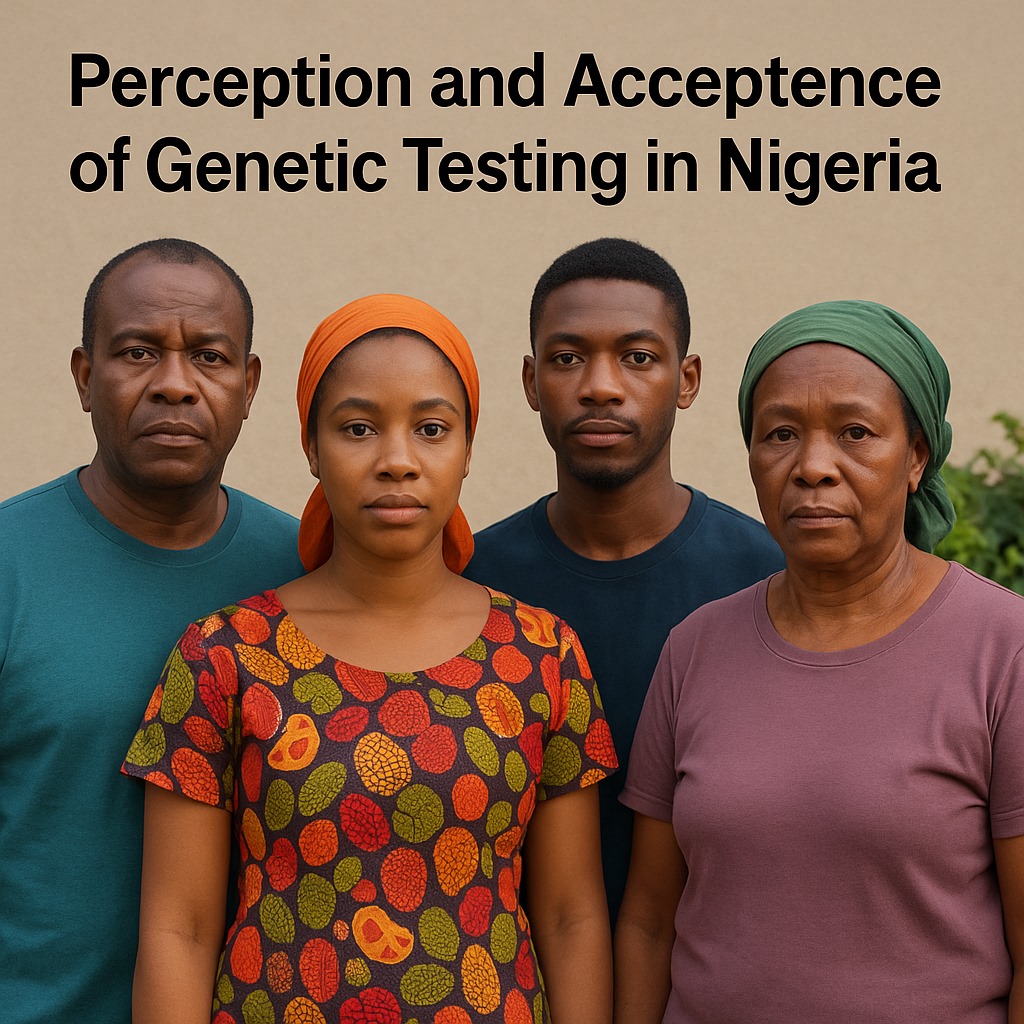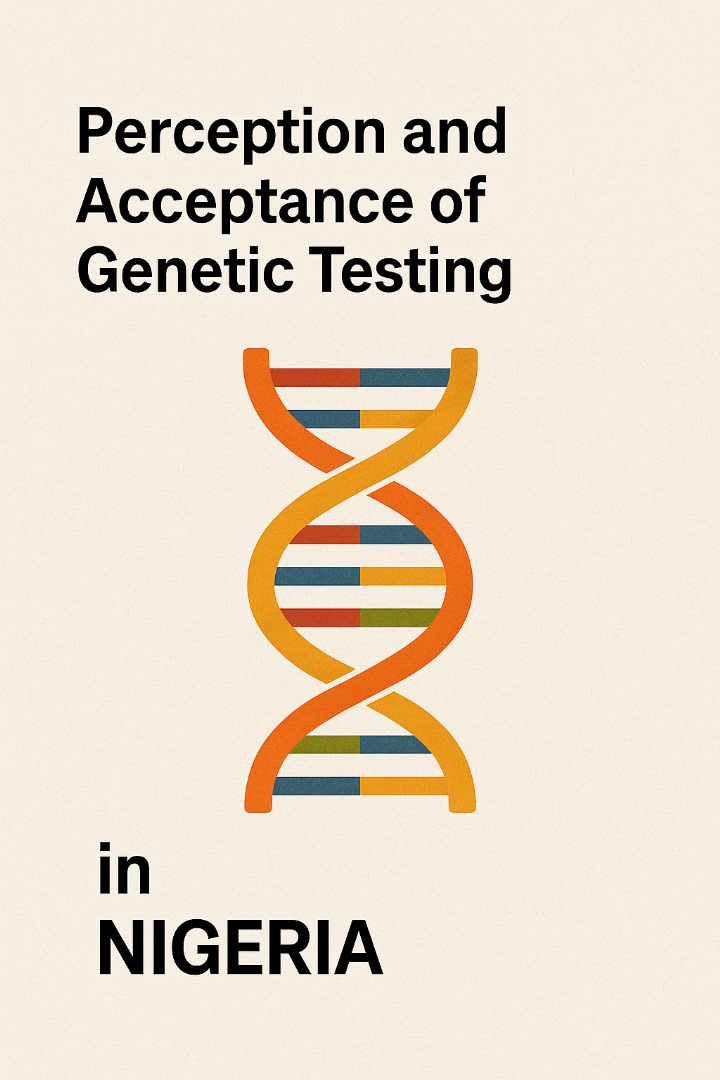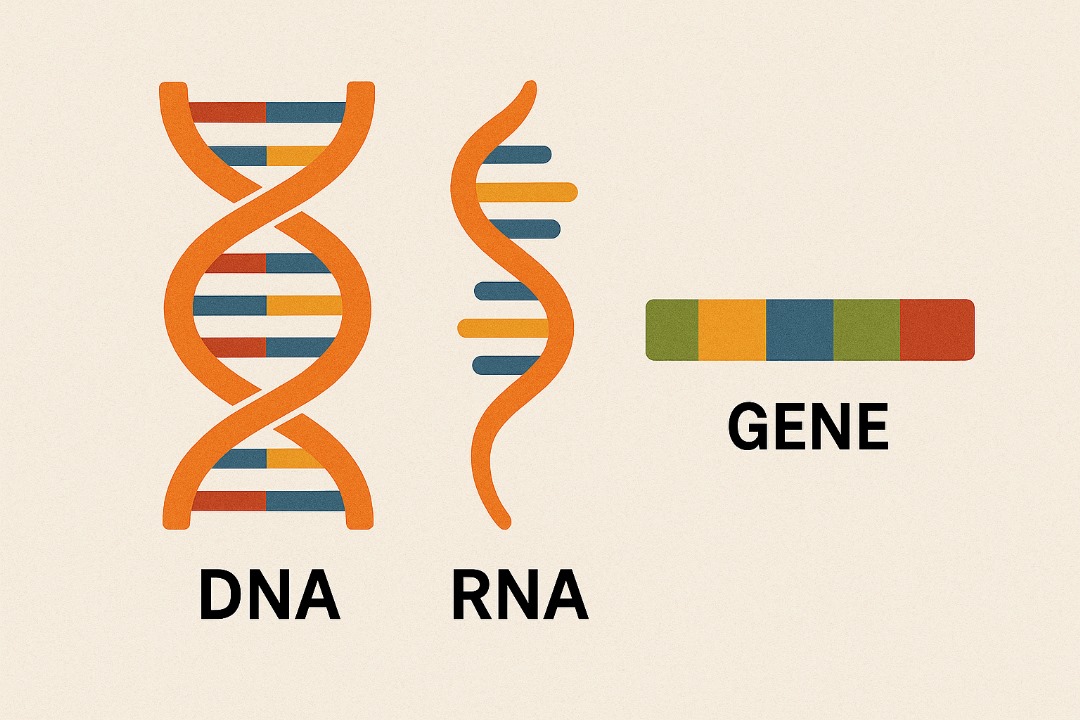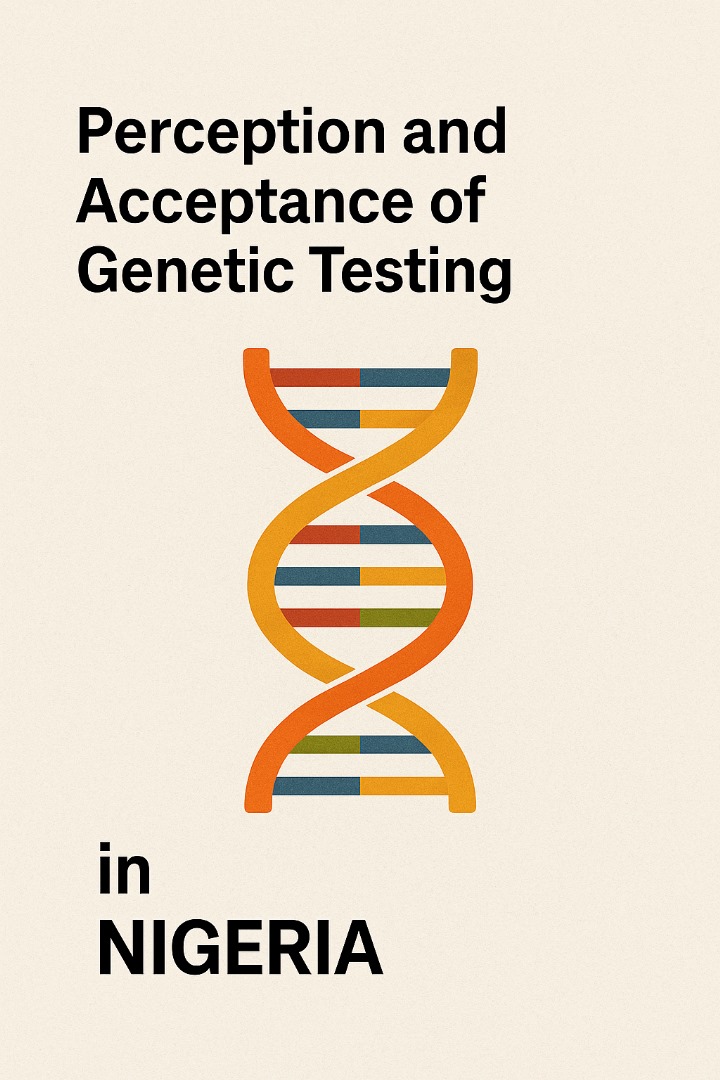



Genetic testing refers to the analysis of DNA, RNA, chromosomes, proteins, or certain metabolites in order to detect heritable disease-related genotypes, mutations, phenotypes, or karyotypes for clinical purposes. It is used to identify changes in genes, chromosomes, or proteins that can confirm or rule out suspected genetic conditions, determine an individual’s chance of developing or passing on a genetic disorder, and guide decisions on medical treatment or lifestyle adjustments. Genetic testing has emerged as a revolutionary tool in modern medicine, enabling early diagnosis, risk assessment, and personalized treatment for a wide range of genetic disorders and complex diseases. Despite its potential benefits, the perception and acceptance of genetic testing among the general population and even within the healthcare community remain varied. In low- and middle-income countries like Nigeria, cultural beliefs, lack of awareness, health literacy, cost implications, and ethical concerns may shape how genetic testing is perceived and accepted. Understanding these perceptions is crucial for the successful implementation of genomic medicine, especially as Nigeria positions itself within the global conversation on precision health. This study seeks to explore how Nigerians across diverse ethnic, cultural, and regional backgrounds perceive genetic testing and to assess the factors influencing their willingness to undergo such testing.
• Aims and Objectives
To assess the perception, awareness, and acceptance of genetic testing among the Nigerian population across the six geopolitical zones.
•Specific Objectives:
To evaluate the level of awareness of genetic testing among individuals in different regions of Nigeria.
To identify the sociocultural, economic, and educational factors influencing acceptance or rejection of genetic testing.
To assess perceived benefits, risks, and ethical concerns associated with genetic testing.
To explore regional differences in perception and willingness to undergo genetic testing.
To provide evidence-based recommendations for public health awareness and policy planning related to genetic services in Nigeria.
3. Methodology
3.1 Study Design:
A descriptive cross-sectional survey will be employed.
3.2 Study Population:
Adult Nigerians aged 18 years and above, residing in the six geopolitical zones (North Central, North East, North West, South East, South South, and South West).
3.3 Sampling Technique:
A multistage sampling approach will be used to select participants across urban and rural areas in each zone. Within selected states, local government areas (LGAs) and wards will be randomly chosen, and eligible respondents will be recruited using systematic sampling.
3.4 Data Collection Tool:
A structured, pretested questionnaire will be administered, covering: - Demographic details - Knowledge and awareness of genetic testing - Attitudes and beliefs - Acceptance and willingness to participate in genetic testing - Perceived barriers and ethical concerns
3.5 Ethical Considerations:
Ethical approval was obtained from the relevant institutional review board. Participants will provide informed consent before inclusion in the study, and all data will be handled confidentially.
4. Progress Report
The study is currently at the data collection phase.

